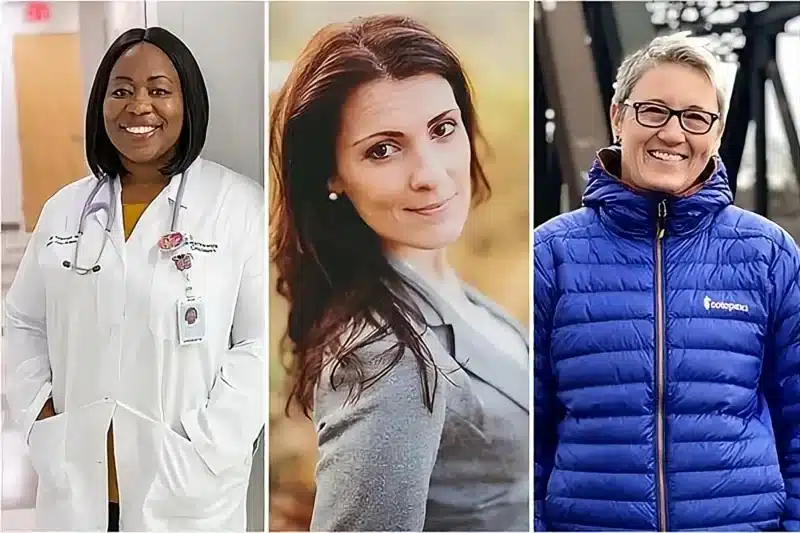As you consider enrolling in an online degree or certificate to pursue your educational goals, you may have questions about tuition reimbursement. You may be asking yourself, “What is tuition reimbursement?” and “How does tuition reimbursement work?” or, more importantly, “Will my employer assist with tuition costs?” and “How do I ask my employer about company tuition reimbursement?”
Many companies today offer tuition reimbursement, even to part-time employees who meet specific requirements. A recent study shows that 92% of companies offer educational benefit programs. Tuition reimbursement is a great benefit to take advantage of, and it starts with a conversation.
Although it might be a tough conversation, we have established some tips and talking points for asking your employer for employee tuition reimbursement. The key is to emphasize the benefits of your education to your employer and address some common concerns.
What is tuition reimbursement?
Before we begin, let’s define tuition reimbursement. Tuition reimbursement, also known as education assistance or tuition assistance, is an employee benefit program through which an employer pays for some or all the costs of an employee’s continuing education toward a certificate or degree.
Employers usually set a predetermined amount of money they will reimburse and may have specific requirements for what kind of continuing education you qualify for. Though many employers offer educational reimbursement benefits, it is often under-utilized by employees.
What are the benefits of tuition reimbursement for you and your employer?
Kick off the conversation with how your continued education will benefit the company and allow you to grow and succeed as an employee. Here are four examples.
1. You will become a leader in the workplace.
Employers want their employees to succeed. With the help of employer tuition reimbursement, your new education will take your position to the next level and help you lead the way for others. The latest knowledge and skills you’ll learn by pursuing an online certificate or degree will set you up for more success within the company.
Emily Caudill, a graduate of the Master of Healthcare Innovation (MHI) program online at The Ohio State University, has gained newfound leadership skills to benefit patients in the healthcare system. “I chose the Master of Healthcare Innovation program because of its partnership with the Wexner Medical Center. I really like that it is an academic medical center with a focus on research. It’s the best hospital in the state,” she said. “The United States has one of the most expensive healthcare systems in the world. America as a whole has some of the sickest people in a developed country. We need to do better. We need to figure out how to change healthcare.” Caudill is using what she has learned to significantly grow in her role and work to change the world of healthcare.
2. You will be able to tackle more projects and assignments.
Upon completing a new degree or certificate program, especially one tied closely to your current role, you will gain innumerable skills in your field. You will be excited, ready, and qualified to take on more projects and tasks with your team. These projects will likely bring in more company revenue. Investing in an education assistance program pays off in the long run for your employer.
3. You will be happier, more productive, and more loyal.
Studies show that if your employer invests in you through tuition reimbursement, you will invest back into the company. Feeling valued and supported in your career advancement only helps to inspire more loyalty within you as an employee. As your new degree guides your continued growth within the company, you will also be more interested in the company’s success.
4. You will meet a new network of people who can help you succeed.
Enrolling in an online program does not mean you’ll be on your own. In fact, it’s usually the opposite. At Ohio State, our online programs build opportunities for you to form meaningful relationships with your professors, get to know your classmates, and join half a million alums around the globe. These connections will further propel your success within your company and industry.
“While going into the program, I was concerned that by Ohio State being one of the largest institutions, I would feel like one in a thousand students. Instead, I felt a sense of close-knit, connected support from both classmates and faculty,” Ohio State online student Stephanie Moore shared.
Moore is a graduate of our online Master of Global Engineering Leadership (MGEL) program, paving the way for women of color – and all women – in STEM through her leadership, career, and advocacy. She appreciated that her professors currently work in the industry, which she considered a “bonus” to applying knowledge to real situations.

What are some common concerns your employer may have about tuition reimbursement?
It is common for some employers to feel hesitant about education assistance programs when it comes to cost and balancing priorities of continuing education. Below are some ways to address these common concerns.
1. Balancing both your work and school will be difficult.
Most online degree programs are designed to meet the needs of working professionals, who make up the majority of students. Ohio State’s online programs are exceptionally flexible, with most offered in an asynchronous format.
In an asynchronous course, work is completed on your own time, which can easily be before or after regular work hours. Students can access and complete lectures, readings, homework and other learning materials anytime during a one or two-week period.
Demi MacLennan, a graduate of Ohio State’s online Master of Science in Translational Pharmacology program, greatly appreciated the support from her professors to work through the program at her own pace.
“I took the program a little slower than others, based on what I could handle. The flexibility in the program was nice,” MacLennan said.
2. Paying for education through employer tuition reimbursement is expensive.
Continued education can be costly, but you can approach this conversation with a simple, estimated ROI calculation. Outline how your new skills learned will help you be more effective in your role and how that will save the company money or bring in new revenue in the long run.
Next, estimate your tuition costs for the online program you want to apply for. Here at Ohio State, you can start with our Cost of College Calculator. Consider how much it would cost both financially and in time training to hire someone to replace you.
Now it’s time to schedule a meeting with your employer! Before discussing tuition reimbursement and education assistance, be prepared to address the benefits and concerns. Pursuing an online degree or certificate ultimately is a valuable investment for you and your employer.



